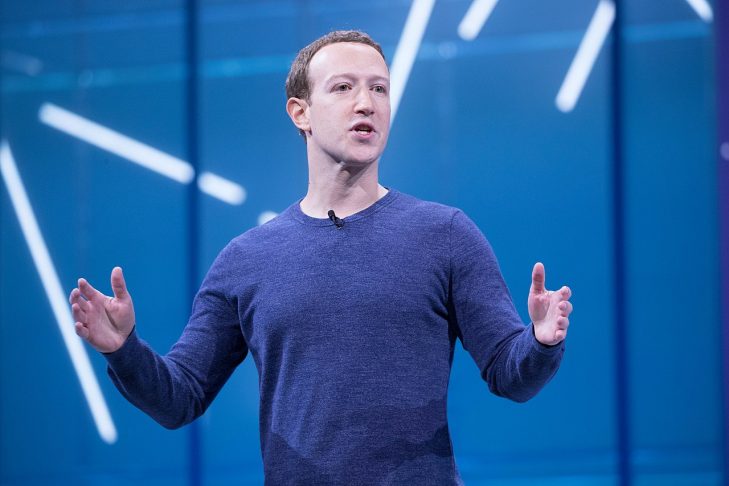Last week Mark Zuckerberg, Facebook’s CEO, gave an interview in which he asserted the popular social networking site would not necessarily remove remarks denying that the Holocaust took place. Zuckerberg made his remarks during an interview with journalist Kara Swisher that was published on the site Recode. The remarks drew fire from Jewish organizations, such as the Anti-Defamation League.
ADL CEO Jonathan Greenblatt said: “Holocaust denial is a willful, deliberate and longstanding deception tactic by anti-Semites that is incontrovertibly hateful, hurtful and threatening to Jews. Facebook has a moral and ethical obligation not to allow its dissemination. ADL will continue to challenge Facebook on this position and call on them to regard Holocaust denial as a violation of their community guidelines.”
Holocaust denial comes in many insidious forms: There is the outright denial of the murder of 6 million Jews replete with conventional neo-Nazi trappings. The despicable assertions that include Jews staged pictures and created newsreel footage, the result of which was akin to a low-budget Hollywood movie. Anne Frank’s diary was a forgery, written in ink that was not manufactured in her lifetime.
But perhaps the most dangerous form of Holocaust denial is the one that is disguised as a wolf in sheep’s clothing. It shamelessly tweaks the number of victims and claims the gas chambers were a hoax, all in the name of scholarship. These Holocaust deniers are a new breed of neo-Nazi, eschewing the swastika and outright Hitler worship in favor of pseudo-academics.
During the Recode interview, Zuckerberg continued to say that Facebook is committed to freedom of expression. This apparently includes speech from far-right conspiracy theory sites like Infowars—a platform that has spread hateful disinformation about tragedies, such as the 2012 Sandy Hook murders. “Look,” said Zuckerberg, “as abhorrent as some of this content can be, I do think that it gets down to this principle of giving people a voice.” He added: “The principles on what we remove from the service are: if it’s going to result in real harm, real physical harm, or if you’re attacking individuals, then that content shouldn’t be on the platform.”
Swisher challenged Zuckerberg about conspiracy theories swirling around Sandy Hook. She said, “‘Sandy Hook didn’t happen’ is not a debate.” Zuckerberg conceded that accusing survivors of lying about Sandy Hook amounts to harassment and Facebook would take down those comments.
Zuckerberg then brought up the Holocaust. “But overall, let’s take this whole thing closer to home. I’m Jewish, and there’s a set of people who deny that the Holocaust happened. I find that deeply offensive. But at the end of the day, I don’t believe that our platform should take that down because I think there are things that different people get wrong. I don’t think that they’re intentionally getting it wrong.”
Swisher interjected: “In the case of the Holocaust deniers, they might be, but go ahead.”
In a somewhat jumbled response, Zuckerberg asserted, “It’s hard to impugn intent and to understand the intent.” He said that public figures, of which he includes himself, often get their facts wrong when speaking. He continued, “I just don’t think that it is the right thing to say, ‘We’re going to take someone off the platform,’ if they get things wrong, even multiple times.”
The next day Zuckerberg tried to walk back his remarks about Holocaust denial and wrote a follow-up email to Swisher: “There’s one thing I want to clear up. I personally find Holocaust denial deeply offensive, and I absolutely didn’t intend to defend the intent of people who deny that. If something is spreading and is rated false by fact-checkers, it would lose the vast majority of its distribution.” He added that advocating for violence or hate against a particular group would be removed. “These issues are very challenging,” said Zuckerberg, “but I believe that often the best way to fight offensive bad speech is with good speech.”
That strategy, however, is not valid on Facebook, which disseminates information on an unprecedented scale. Any addendums or corrections to hate speech go virtually unnoticed. Once hate has been unleashed, it is impossible to rein it in. The very aim of Holocaust deniers is to repackage the virulent anti-Semitism that made the Holocaust possible in the first place.
As Holocaust scholar Deborah Lipstadt said in an essay on CNN.com, Holocaust denial rests on anti-Semitic tropes that are 2,000 years old. Lipstadt wrote: “Holocaust denial is not about history. A form of anti-Semitism, it’s about attacking, discrediting and demonizing Jews.” She went on to cite more heinous anti-Semitic strategies of deniers’ claims, including that Jews planted evidence and forced German prisoners of war to admit to false crimes.
As survivors die and memories fade, the distortions and outright denials eroding the history of the Nazi genocide are akin to water dripping on a stone. That is what makes these persistent anti-Semites as effective as those first drops of water beginning to erase the singularity of the Holocaust.



